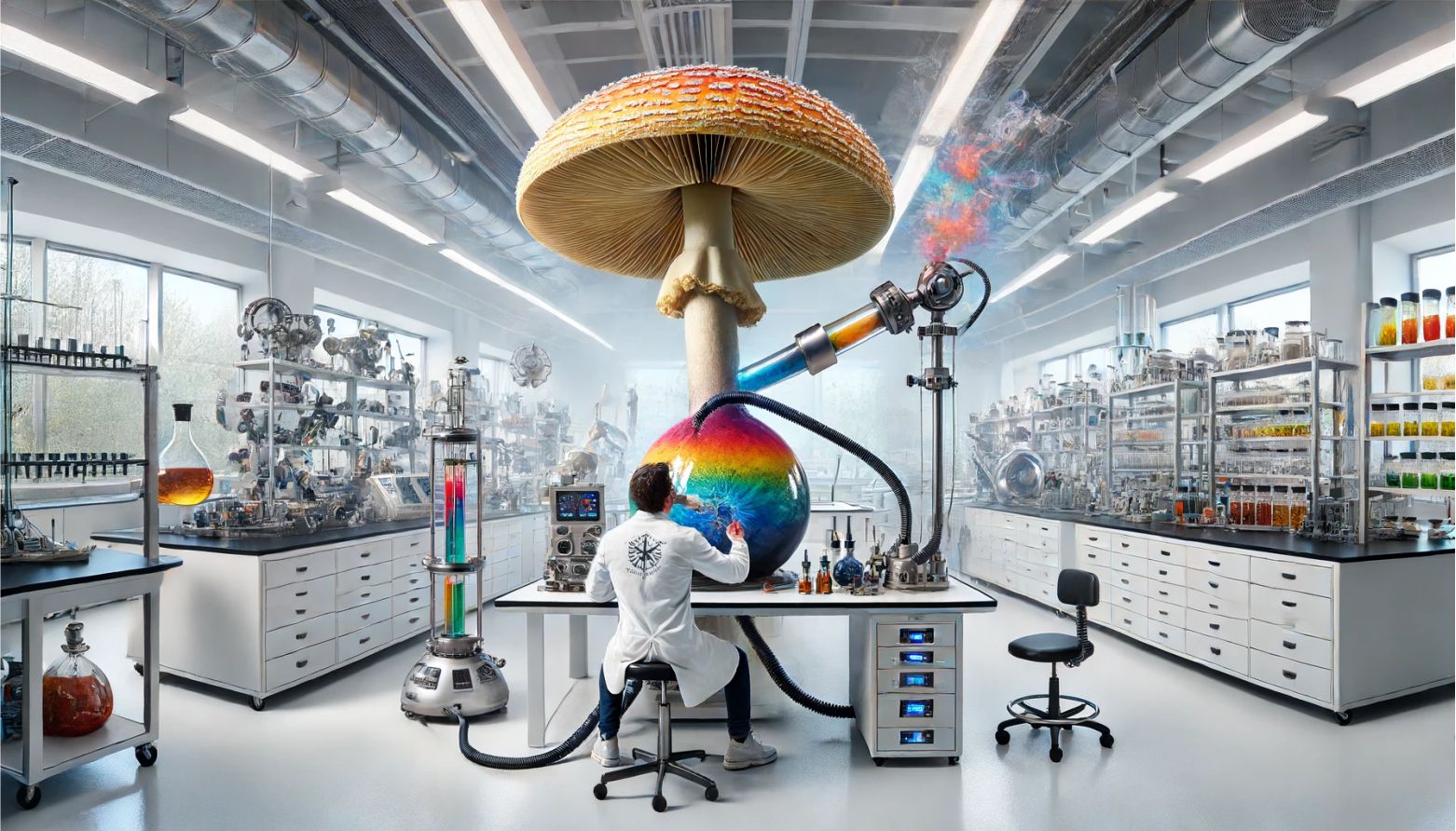Magic mushrooms, also known as psilocybin mushrooms, have been used for centuries for their psychoactive effects. Recently, a growing trend has taken over, which involves smoking magic mushrooms. The method raises many questions about its efficacy, health risks, and effects. In this article, we will take a close look into what smoking shrooms feel like, how they differ from traditional consumption, and the potential risks and negative consequences often associated with it.
Smoking Magic Mushrooms: The Truth You Need to Know
Magic mushrooms contain a compound called psilocybin, which is the primary psychoactive compound responsible for their hallucinogenic effects. When ingested, psilocybin is converted into psilocin, which influences serotonin receptors in the brain, leading to altered perceptions and experiences.
Traditional Consumption Methods
Typically, people consume magic mushrooms by eating them dried, making magic mushroom tea, or using methods like lemon tek, which involves soaking the mushrooms in lemon juice to enhance their psychedelic effects. The methods allow the body to absorb psilocybin effectively, leading to the desired psychedelic effects.
A Glance at What Smoking Magic Mushrooms Feels Like
Smoking magic mushrooms, or smoking shrooms, involves inhaling the smoke from burning dried shrooms. Some people attempt that method to achieve the psychoactive effects of smoking mushrooms without consuming the mushrooms orally. However, smoking psilocybin mushrooms is not as effective as traditional methods due to several factors.
Why Smoking Magic Mushrooms is Ineffective
Direct flame effectively degrades psilocybin, meaning that the heat from smoking destroys much of the psychoactive compound before it is absorbed. It significantly reduces the psychoactive compounds’ effects and makes smoking shrooms less reliable for those seeking intense hallucinations or the full spectrum of effects that come from consuming magic mushrooms.
Health Risks of Smoking Magic Mushrooms
Smoking magic mushrooms poses several health risks. When mushrooms are burned, they release harmful spores and other toxins that may lead to lung irritation and lung inflammation. Additionally, the general smoking risks associated with inhaling any burnt plant material, such as the increased risk of lung cancer, apply here.
Potential Adverse Effects
Consuming magic mushrooms may cause various adverse effects, and smoking shrooms adds another layer of risk. Potential adverse effects include respiratory issues, a weakened immune system, and general health risks from inhaling harmful toxins. Moreover, the unpredictable potency of smoked mushrooms could lead to unexpected bad trips, characterized by intense and often frightening hallucinations and psychological effects.
Harm Reduction Strategies
For those considering using magic mushrooms, understanding harm-reduction strategies is crucial. Consuming mushrooms through traditional methods like oral ingestion or making mushroom tea is generally safer and more effective. Additionally, being aware of the mental health conditions that psychedelic substances worsen, and approaching magic mushrooms with caution, may help mitigate some of the potential risks.
Effects of Smoking Shrooms
Smoking shrooms, despite its rising popularity, remains a controversial and largely ineffective method of consuming magic mushrooms.
Ineffectiveness of Smoking Shrooms
As mentioned earlier, smoking magic mushrooms is generally ineffective because the direct flame degrades the primary psychoactive compound, psilocybin. The degradation significantly reduces the psychoactive effects that users seek. While some anecdotal evidence suggests that individuals might feel mild effects, they are often not comparable to the intense hallucinations and psychedelic experiences achieved through oral ingestion.
Psychological Effects
The physical and psychological effects users experience when smoking shrooms are often unpredictable. The inconsistency in the potency of smoked mushrooms often leads to varied and sometimes disappointing outcomes. Users might expect the vivid visual and auditory hallucinations typically associated with magic mushrooms, but those effects are usually diminished or absent when the mushrooms are smoked.
Mental Health Implications
The mental health implications of smoking magic mushrooms could be severe, especially for individuals with pre-existing mental health conditions. The unpredictable nature of the effects of smoke mushrooms may lead to anxiety, paranoia, and in some cases, a bad trip. It is particularly concerning for those with underlying mental health issues, as the altered state of consciousness induced by psilocybin sometimes worsens their conditions.
Substance Abuse and Dependency
While magic mushrooms are not typically considered addictive, the method of consumption sometimes plays a role in substance use behaviors. Smoking magic mushrooms may contribute to risky behaviors and the potential for developing a substance use disorder. It’s important to recognize that even though magic mushrooms are not physically addictive, the psychological desire to experience altered states may lead to repeated use of psychedelic mushrooms and associated risks.
Safe Consumption Methods
To minimize the health risks and maximize the desired psychedelic effects, safer consumption methods should be prioritized. Oral ingestion of dried shrooms, making mushroom tea, or using the lemon tek method are all more effective ways to consume psilocybin mushrooms. Those methods ensure that the psilocybin is absorbed properly and that users experience the full range of psychoactive effects.
Smoking Shrooms: The Bottom Line
Smoking shrooms is generally an ineffective and risky method of consuming psilocybin mushrooms. The degradation of psilocybin by direct flame, combined with the health risks associated with inhaling burnt plant material, makes the method less desirable compared to traditional ingestion methods. By understanding the potential risks and adopting safer consumption practices, users may have more controlled and meaningful experiences with magic mushrooms.
Therapeutic Benefits and Legal Landscape
While the recreational use of magic mushrooms often garners the most attention, it’s essential to understand their potential therapeutic benefits and the complex legal landscape surrounding them.
Potential Therapeutic Benefits
Recent research has highlighted several potential therapeutic benefits of psilocybin mushrooms. Psilocybin, the primary psychoactive compound in magic mushrooms, has shown promise in treating various mental health conditions, including depression, anxiety, and PTSD. Studies suggest that ingesting psilocybin mushrooms could help reset the brain’s neural pathways, leading to improved mental health outcomes.
For example, psilocybin-assisted therapy has been found to provide long-lasting relief for patients with treatment-resistant depression. The therapeutic approach involves controlled doses of psilocybin administered in a safe, supervised setting, combined with psychotherapy. The psychedelic effects of psilocybin may facilitate profound emotional and psychological insights, contributing to its therapeutic potential.
Legal Status of Magic Mushrooms
The legal status of magic mushrooms varies widely around the world. In the United States, psilocybin mushrooms are classified as a Schedule I substance under the Controlled Substances Act, meaning they are illegal to possess, distribute, or consume. However, there is a growing movement to decriminalize and regulate their use for therapeutic purposes.
Several cities, including Denver, Colorado, and Oakland, California, have decriminalized the possession and use of magic mushrooms. Additionally, Oregon became the first state to legalize psilocybin therapy in 2020, allowing licensed therapists to administer psilocybin in controlled settings. The legal changes reflect a broader shift in public perception and recognition of the potential therapeutic benefits of psilocybin.
Frequently Asked Questions
Where is the best place to grow mushrooms?
The best place to grow mushrooms is in a controlled indoor environment where you regulate temperature, humidity, and light. A clean, dark, and humid space, such as a basement or a dedicated grow tent, is ideal for cultivating mushrooms.
Can you grow mushrooms on anything?
Mushrooms grow on a variety of substrates, including straw, wood chips, and composted manure. However, each mushroom species has specific substrate preferences. For instance, oyster mushrooms grow well on straw, while shiitake mushrooms prefer hardwood logs.
What blocks can mushrooms grow on?
Mushrooms grow on substrate blocks made from sawdust, straw, or a mix of organic materials. The substrate blocks are often inoculated with mushroom spawn and kept in a controlled environment to promote mycelium growth.
How do you extend the life of mushrooms?
To extend the life of fresh mushrooms, store them in a paper bag in the refrigerator. That allows them to breathe and reduces moisture buildup, which may lead to spoilage. For longer storage, consider drying mushrooms or freezing them after cooking.
What is the easiest mushroom to grow?
The easiest mushroom to grow for beginners is the oyster mushroom. Oyster mushrooms are resilient, grow quickly, and thrive on a variety of substrates, making them ideal for novice cultivators.



